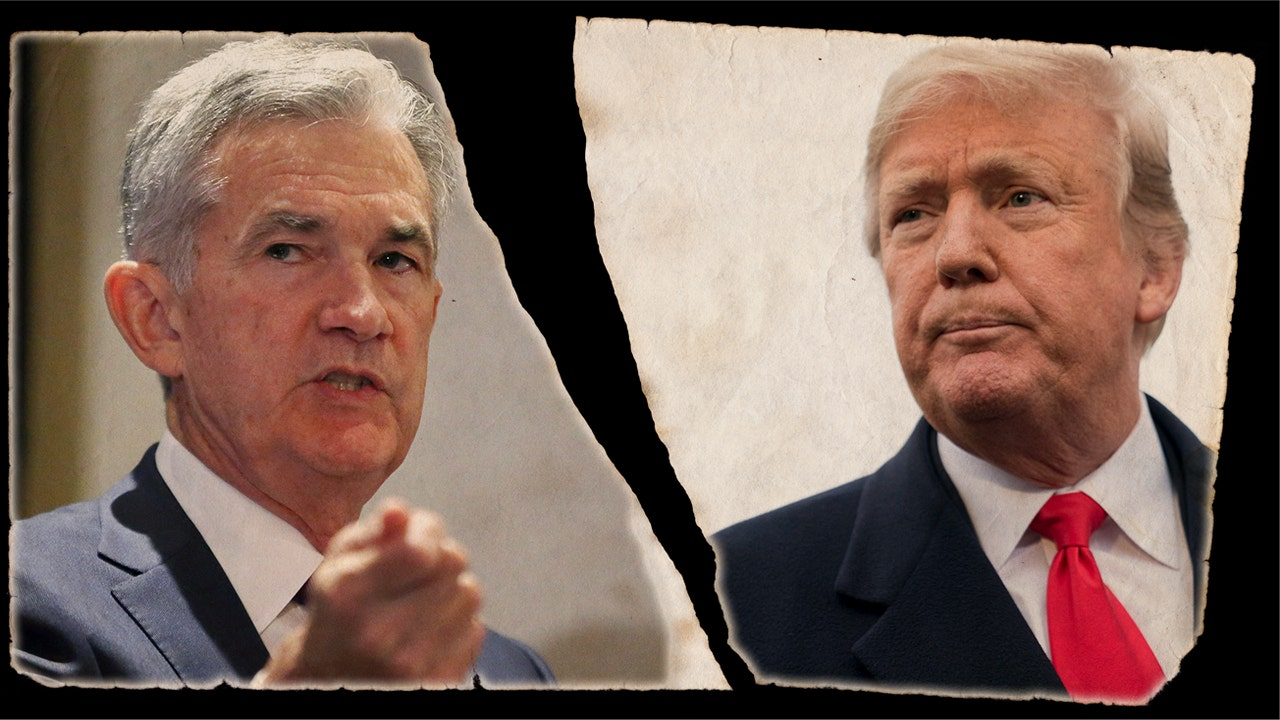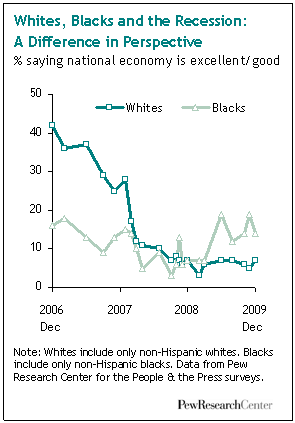In the ever-evolving landscape of the U.S. economy, the specter of Trump firing the Fed chairman, Jerome Powell, has stirred significant debate and speculation. The relationship between Trump and Powell has been fraught, with the former president openly criticizing the Federal Reserve’s strategies and even hinting at his desire to remove Jerome Powell before his term ends. This potential move raises concerns about the Federal Reserve’s independence, a topic that remains at the heart of ongoing discussions around the future of U.S. monetary policy. As market reactions to Fed changes can have profound impacts on economic stability, understanding the implications of such a decision is crucial. Analysts argue that removing Powell could exacerbate existing Federal Reserve controversies and create an unsettling environment for investors, heightening fears of inflation and hindering growth.
The question looming over the financial sector is whether a president has the authority to dismiss the head of the central bank. Trump’s contentious stance on monetary policy reflects deeper issues surrounding the perceived autonomy of the Federal Reserve and its leadership. As the bond between the White House and the Fed continues to evolve, the dynamics of this relationship will significantly influence market stability and investor confidence. The ramifications of an ousting could extend far beyond immediate market fluctuations, impacting long-term economic forecasts and inflation without clear guidance. Understanding these complexities is essential for grasping the intricacies of the ongoing debates about the independence of financial governing bodies.
Can Trump Fire Fed Chairman Jerome Powell?
The question of whether Trump can fire Fed Chairman Jerome Powell is a complex legal and political issue. The Federal Reserve Act permits the president to remove governors for “cause,” but it doesn’t clarify if this applies to the chair. Trump’s strained relationship with Powell has raised concerns, especially as he has suggested removing him before his term ends. Many analysts suggest a move against Powell could harm the Federal Reserve’s independence, and public reaction to such a decision likely underscores the political implications it carries.
Moreover, the market’s apprehension regarding Trump firing Powell reflects deeper concerns about the Fed’s role in economic stability. Unlike typical cabinet positions, the Fed is designed to operate independently of political pressures, ensuring that monetary policy is dictated by economic indicators rather than political expediency. Thus, Trump’s potential action could disrupt market stability, as investors typically favor a Fed that can function without interference from short-term political agendas.
The Federal Reserve Controversy: Trump vs. Powell
The controversies surrounding the Federal Reserve largely stem from Trump’s pursuit of aggressive economic strategies that often conflict with Powell’s more cautious approach. The tension between implementing tariffs and controlling inflation showcases how Trump’s fiscal policies can complicate the Fed’s objectives. Powell’s reluctance to aggressively cut interest rates, as desired by Trump, has led to public confrontations, with accusations that Powell’s actions have not supported economic growth.
This conflict illustrates the broader debate about the independence of central banks in the face of political pressures. The Federal Reserve’s role is to manage inflation and ensure economic stability, which requires decisions that may not always align with the administration’s visions. Analysts argue that Trump’s efforts to tie the Fed’s decisions to his own economic policies could undermine the institution’s credibility, thus escalating the existing Federal Reserve controversy.
Market Reactions to Federal Reserve Changes
Market reactions to changes within the Federal Reserve emphasize the sensitive balance between fiscal policy and economic stability. Any hint of instability—such as a potential ousting of Powell—can lead to significant turbulence in financial markets, as investors react to perceived risks including rising interest rates and inflation uncertainties. This reaction demonstrates how crucial the perception of Fed independence is to market confidence.
Moreover, historical data suggests that markets thrive on predictability and stability. Should Trump fire Powell, the expected replacement would likely be scrutinized for their willingness to adhere to more accommodating monetary policy, further destabilizing market confidence. Therefore, the market’s reaction to potential changes at the Fed underscores the significance of leadership continuity and the broader implications for economic policy.
Trump and Powell: A Complicated Relationship
The relationship between Trump and Powell has been marked by public disagreements and mutual criticisms, setting a contentious tone for Fed policy discussions. Initially nominated by Trump, Powell soon found himself at odds with the president over monetary policies, especially regarding interest rate hikes. Trump’s vocal dissatisfaction with Powell’s decisions has raised questions about the Fed’s independence and its ability to operate free from political influence.
This complicated relationship further complicates the economic landscape, as Trump’s policies often favor immediate growth at the potential cost of future stability. Analysts note that such friction could lead to hesitance among investors, who fear that political motivations could sway central bank decisions, ultimately risking the integrity of the financial system. This dynamic illustrates the delicate nature of government and economics, necessitating clear boundaries between fiscal policy and political ambitions.
Implications of Trump Removing Powell
Should Trump pursue the removal of Powell, the implications could be far-reaching for both the economy and the perception of the Federal Reserve’s independence. Historically, the Fed has been positioned to act independently of presidential influence to effectively manage monetary policy and economic stability. Trump’s dismissal of Powell could be interpreted as a desire to exert control over the central bank, which could alarm investors concerned about the potential for lax monetary policies.
Moreover, the potential fallout from such an action could amplify market fluctuations. The Fed’s credibility as a stabilizing force in the economy relies heavily on its independence, and any attempt to politicize central bank actions could shake that foundation. Thus, Trump’s move to fire Powell, though legally possible, may ultimately hurt the administration’s economic objectives more than it would help.
Legal Framework of the Federal Reserve Chair’s Removal
The legal framework governing the removal of a Federal Reserve Chair, such as Jerome Powell, hinges on both statutory interpretation and constitutional law. The Federal Reserve Act allows for the removal of governors ‘for cause,’ prompting debate about whether this extends to chairs appointed for four-year terms. Legal experts argue that although the act provides a basis for removal, it does not give clear grounds for a president to dismiss the chair without valid justification.
Recent Supreme Court decisions may influence how this authority is interpreted. A trend towards limiting the protections typically afforded to leaders of independent regulatory agencies could open the door for broader interpretations of presidential removal power. Consequently, the legal ramifications surrounding Trump’s threats against Powell could shape the future governance of the Fed and its perceived independence.
The Role of Independence in the Federal Reserve
Independence is a cornerstone of the Federal Reserve’s ability to conduct monetary policy effectively and to manage inflation. The chair’s role is not only to guide policy but also to maintain the perception that the Fed operates free from external influence. This independence allows for decisions that focus on long-term economic stability rather than immediate political pressures.
However, Trump’s ongoing critique of Powell’s policies has drawn attention to the importance of this independence. Any attempts to remove the chair could set a precarious precedent, leading to a future where political agendas dictate monetary policy. A strong and independent Federal Reserve is crucial for maintaining market confidence and ensuring that fiscal decisions are made based on economic data rather than political motivations.
Potential Consequences of a Fed Chair Removal
The potential consequences of removing a Fed chair extend beyond political implications, reverberating through the global economic landscape. Should Trump follow through on his threats, the markets could react negatively, leading to increased volatility as investors digest the uncertainty surrounding the Fed’s direction. Such instability could prompt a re-evaluation of investment strategies and raise longer-term interest rates, significantly impacting economic growth.
Furthermore, the relationship between the executive branch and the Federal Reserve could face irreparable harm. If the Fed is viewed as vulnerable to executive influence, it would likely erode public confidence in the central bank’s ability to manage inflation responsibly, potentially leading to a more pronounced economic downturn. As history teaches, maintaining a clear separation between political action and monetary policy is vital for economic health.
Are There Alternatives to Firing Powell?
Instead of pursuing the politically charged route of firing Powell, Trump could explore alternative strategies to align the Fed’s goals with his administration’s economic agenda. For example, facilitating open dialogue with Powell and working towards shared economic objectives may prove to be more beneficial than a contentious ousting. Collaborating on a unified vision for monetary policy could mitigate market concerns while obfuscating the need for immediate changes.
Moreover, the prospect of waiting until Powell’s term concludes before nominating a successor offers a less disruptive transition. This approach could preserve the Fed’s independence while allowing for fresh leadership that aligns with the president’s economic framework. Ultimately, prioritizing stability and continuity within the Federal Reserve could address immediate political goals without jeopardizing the institution’s credibility.
Frequently Asked Questions
Can Trump fire Fed chairman Jerome Powell?
Yes, President Trump could technically attempt to fire Fed chairman Jerome Powell, as the Federal Reserve Act of 1913 allows for removal, but any such action would likely provoke serious legal and market reactions.
What would happen if Trump decided to remove Jerome Powell?
If Trump were to remove Jerome Powell, it could severely undermine the Federal Reserve’s independence and provoke a significant market reaction, potentially leading to increased volatility and uncertainty in financial markets.
How does the Trump-Powell relationship affect the Federal Reserve controversy?
The Trump-Powell relationship has created controversy, particularly around differing views on interest rates and economic policy. Trump’s criticism of Powell’s reluctance to cut rates has led to speculation about Powell’s job security.
Why is Fed chair independence important in the context of Trump’s potential actions?
Fed chair independence is crucial as it allows for unbiased monetary policy decisions, helping to maintain stable economic conditions. If Trump were to interfere by removing Powell, it could damage the Fed’s credibility and effectiveness.
What does market reaction to Fed changes indicate about Powell’s position?
Market reaction to any potential changes at the Fed, particularly regarding Powell’s position, often reflects investor concerns about monetary policy stability. Heightened anxiety could lead to increased yields and market instability.
Could the Supreme Court support Trump’s move to remove Powell?
While the legal framework surrounding the removal of a Fed chair is complex, recent shifts in Supreme Court decisions could pave the way for broader executive power, though it remains uncertain how they would rule on such a specific case.
What are the implications of Trump’s threats to oust Powell before the end of his term?
Threats to oust Powell could create immediate turmoil in markets, leading to speculation on interest rate policies and potential inflation fears, ultimately affecting economic growth.
What legal protections exist for Jerome Powell against removal as Fed chairman?
Jerome Powell, while serving as Fed chair, is protected by the appointment process outlined in the Federal Reserve Act, although interpretations of his ‘for cause’ protection may vary, leading to legal debates over his removal.
How does Wall Street perceive the potential removal of Powell by Trump?
Wall Street tends to react negatively to the potential removal of Powell, as it signals uncertainty regarding the independence of the Federal Reserve and the possible shift to a more accommodative monetary policy, which could spur inflation.
What factors would influence Trump’s decision on whether to keep or fire Powell?
Trump’s decision may hinge on his economic policy goals, the political climate, and market reactions. If financial markets respond poorly to any hint of Powell’s removal, it could deter Trump from acting on his impulses.
| Key Points |
|---|
| Trump has had a contentious relationship with Fed Chair Jerome Powell, criticizing him for not cutting interest rates aggressively. |
| The legality of Trump firing Powell is debated, as the Federal Reserve Act allows removal for cause but may not protect the chair’s position. |
| If Trump were to fire Powell, it could destabilize markets and harm the Fed’s independence, as markets might fear looser monetary policies. |
| Recent Supreme Court decisions may leave the legality of such a removal open to interpretation, but it seems unlikely they would support it. |
| The market reaction to Powell’s potential ousting would likely be negative, increasing long-term interest rates and undermining trust in the Fed. |
| Powell has one year left in his term, and analysts suggest it may be prudent for Trump to wait until he can appoint a successor. |
Summary
Can Trump fire Fed chairman Jerome Powell? The answer involves complex legal interpretations and potential market impacts. Ultimately, while it is theoretically possible for Trump to attempt to remove Powell, such a move would likely face significant legal challenges and could destabilize financial markets, harming the Federal Reserve’s credibility. Given the current economic climate, it may be wiser for the Trump administration to allow Powell to complete his term.



